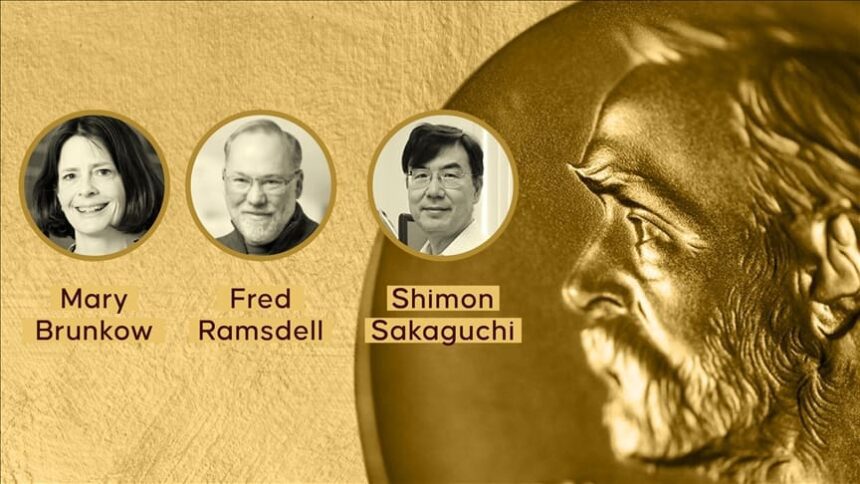The 2025 Nobel Prize in Medicine has been awarded to Mary Brunkow and Fred Ramsdell from the United States, along with Shimon Sakaguchi from Japan, for their groundbreaking research on peripheral immune tolerance. Their work has significant implications for the treatment of autoimmune diseases and the advancement of cancer therapies.
The announcement was made during a press conference at the Karolinska Institute in Sweden on Monday. Brunkow, Ramsdell, and Sakaguchi were recognized for their discovery of the mechanisms that regulate the immune system’s ability to avoid attacking its own tissues, which is crucial for maintaining immune balance and preventing autoimmune illnesses.
Typically, the immune system employs T cells to detect and eliminate invading pathogens. However, certain T cells may mistakenly identify the body’s own proteins as threats, resulting in harmful autoimmune responses.
Through comprehensive genetic studies conducted on mice with autoimmune disorders, the researchers pinpointed the Foxp3 gene as a critical regulator of regulatory T cells, a specialized group of immune cells that suppress detrimental immune activity. This gene has also been linked to IPEX syndrome, a rare human immune disorder, underscoring its essential role in immune regulation across different species.
Their research has paved the way for innovative medical treatments that are currently undergoing clinical trials. These include potential therapies aimed at preventing severe complications following stem cell transplants, improving the efficacy of cancer immunotherapy, and seeking cures for autoimmune diseases that presently lack definitive treatment options.
Tags: Nobel Prize, Medicine, immune tolerance, scientists, pioneering work
Hashtags: #scientists #awarded #Nobel #Prize #Medicine #pioneering #work #immune #tolerance










